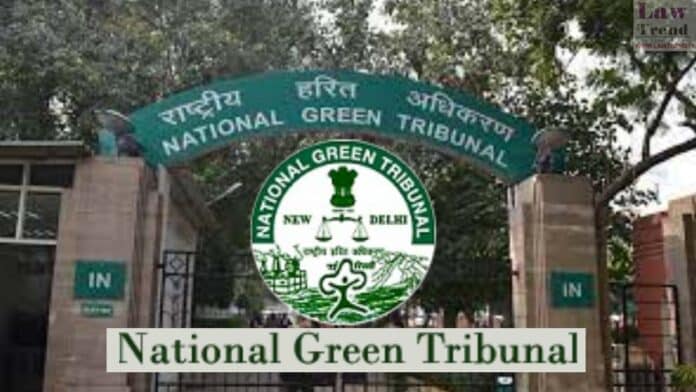The National Green Tribunal has formed a panel to conduct a study and suggest remedial measures for preventing environmental damage in light of the incident of land subsidence in Doda District of Jammu and Kashmir.
The tribunal was hearing a matter where it had taken cognisance of a media report on its own about the damage and displacement caused by “slipping of the earth”.
According to the report, most houses in the area were damaged resulting in displacement of the inhabitants.

A bench of Chairperson Justice A K Goel noted that a geological survey of the area was being conducted to ascertain the reasons for the incident. It said the issue was a “matter of concern” requiring “stringent preventive and remedial measures”.
The bench, also comprising Expert Members A Senthil Vel and Afroz Ahmad noted the tribunal had earlier passed an order regarding the fragile areas in the Himalayan region and places including Shimla, Kasauli, Manali, McLeod Ganj in Himachal Pradesh and Aravali hills in Rajasthan.
By the order, the green panel had constituted a committee of representatives of the departments concerned and experts to suggest remedial measures.
“On the above pattern, we direct the constitution of a joint committee to be headed by Chief Secretary, Jammu and Kashmir,” the tribunal said.
Other committee members would include the Central Pollution Control Board (CPCB), Wadia Institute of Himalayan Geology, Govind Ballabh Pant National Institute of Himalaya and Environment, National Institute of Hydrology (NIH), Professor J S Rawat of Kumaon University, Space Application Centre, National Institute of Rock Mechanics and ACS Environment, the tribunal said.
“The committee may suggest remedial measures to prevent environmental damage in the light of carrying capacity, hydro-geology studies, geo-morphological studies and also covering other allied and incidental issues,” it said.
The committee can take assistance from any other experts or institutions and it had to meet within two weeks, the tribunal said adding, it could interact with the stakeholders, including the inhabitants and members of civil society.
The committee had to complete its studies within two months and submit a report by May 15, it said.
Meanwhile, the chief secretary could take preventive and remedial measures found necessary in light of the media report, the tribunal said.
The matter has been posted for further proceedings on May 25.







